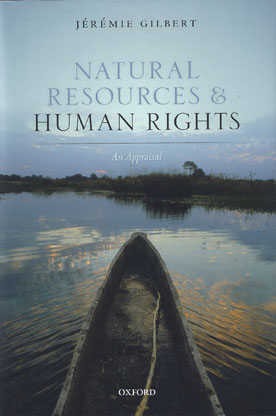
Natural resources and their effective management are necessary for securing the realisation of human rights. The management of natural resources is linked to broad issues of economic development, as well as to political stability, peace and security, but it is also intimately connected to the political, economic, social and cultural rights of individuals and communities relying on these resources.
The management of natural resources often leads to ill-planned development, misappropriation of land, corruption, bad governance, misaligned budget priorities, lack of strong institutional reforms and weak policies coupled with a continued denial of the human rights of local communities.
This book argues that human rights law can play an important role in ensuring a more effective and sustainable management of natural resources, putting forward the idea of a human rights-based normative framework for natural resource management. It offers a comprehensive analysis of the different norms, procedures, and approaches developed under human rights law that are relevant to the management of natural resources.
Advocating for a less market and corporate approach to the control, ownership, and management of natural resources, this book supports the development of holistic and coherent integration of human rights law in the overall international legal framework governing the management of natural resources.